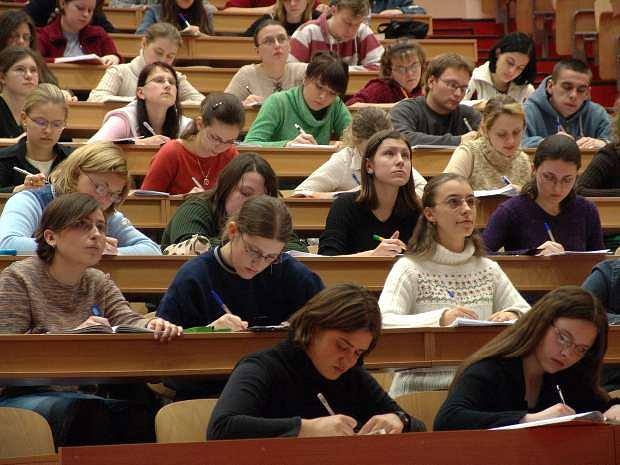Romanian students to protest planned cuts of public university places

Students of several public universities in the country have announced a protest today, April 17, after the Education Ministry reduced the number of student places available in some disciplines in the preliminary planning for the 2018-2019 academic year.
Several of the largest and oldest public universities in Romania were left without hundreds of places in the bachelor, master and doctoral programs in the new planning.
Some 1,000 students would have to pay for their master and doctoral studies if they chose to attend the programs of graduate institutions such as the University of Bucharest, the Babeş-Boylai University, the Alexandru Ioan Cuza University or the National School of Political and Administrative Studies (SNSPA), according to the Facebook description of the event. The humanities and social sciences programs are the most affected by the cuts, and some universities could close programs, cut courses or even give up some of their staff, the students say. They asked for last year’s number of funded student places to be maintained and for education minister Valentin Popa to resign.
At the same time, students of the universities that are part of the Universitaria Consortium have asked the education minister to publish the criteria used to allocate the funded places in public universities.
In a public letter, they argued that “the allocation of places should be driven by a transparent process, which inspires trust to the whole society, a process based on a predictable, coherent and previously established methodology. Instead, the way the Education Ministry acted can only impact, unfortunately, the already shaken trust in the Romanian university environment.”
The Universitaria Consortium includes the University of Bucharest, the Alexandru Ioan Cuza University in Iasi, the Academy of Economic Studies in Bucharest, the Vest University in Timisoara and the Babeş Bolyai University in Cluj-Napoca.
The education minister answered to the request by explaining that the allotment was a preliminary one and that it was made “to support the priority programs, proportionally with the number of students in the programs that can support these programs.” The priority areas include bio-economy, IT and communication, energy, environment and climate change, eco-nanotechnologies and health.
Popa also denied any political grounds to the allotment. “We were accused we alloted these places on political criteria. It is not true,” he said.
Last week, the Union of Students in Romania warned that the cuts in funded places for some study areas could lead to a lower number of students enrolling and attending graduate studies and could discourage the young from pursuing university studies.
It also argued that the 2014-2020 National Strategy for Research, Development and Innovation is implemented “without a specific productivity.” “We think that the increase of allotted numbers in these areas is sudden. There is the risk of a low demand for them and, consequently, of the places remaining unoccupied. The areas are, indeed, a priority for Romania’s future development but the axes are still new, still unexplored academically and scientifically, raising doubts of the quality of the instruction.”
Student places allocation sparks row in Romania’s public education sector
editor@romania-insider.com












